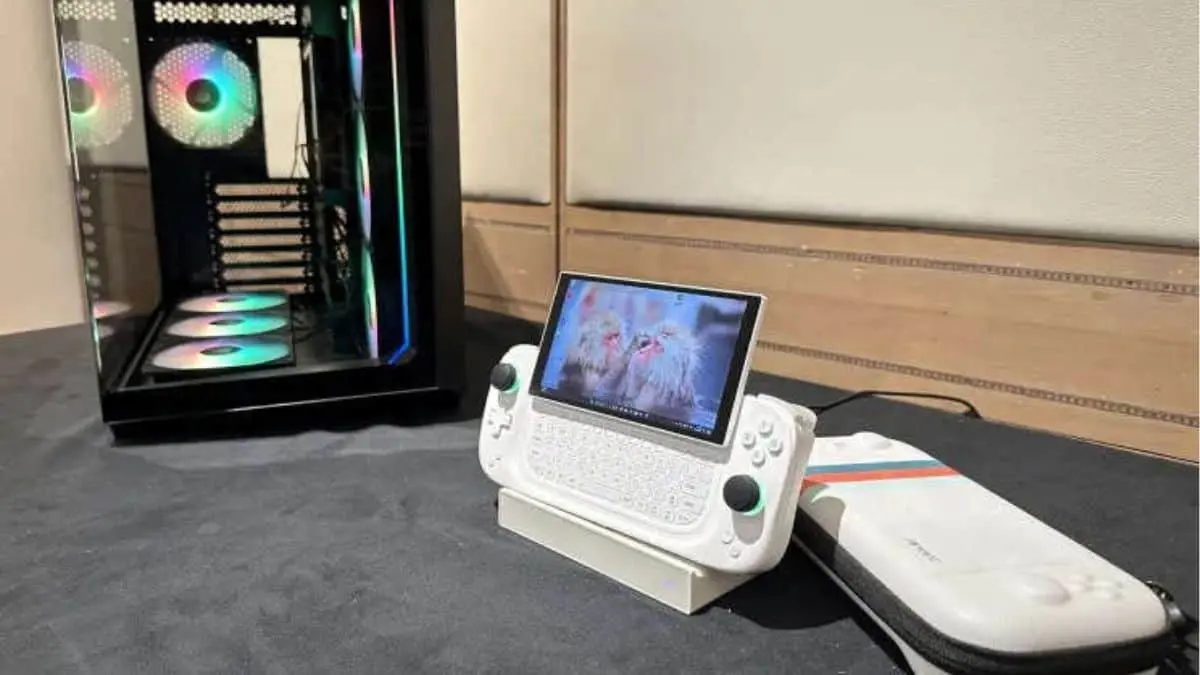- cross-posted to:
- steamdeck@lemmit.online
- cross-posted to:
- steamdeck@lemmit.online
TL;DR: Antec is going to be selling a Steam Deck competitive device, based on the Ayaneo Slide. The device has a slide up screen that reveals a keyboard, which is good because using desktop windows is much easier with a keyboard. However the device’s lowest estimated power draw at low/no load is 15w, meaning it will use comparable power to the deck running at max power. This means the battery life will probably be pretty rough when compared to the Deck. It will also likely have a much higher price point.



To be honest, any hardware company can’t really compete with valve toe to toe since valves can cut cost and sell at a loss. But I am interested in how the so-called steam competitor would make the same handheld device. I’m waiting for you Tim Epic.
Please for the love of God no Whatever epic released would be half baked and make the entire gaming ecosystem worse
See I’m really split on Epic.
The corporate side is absolute trash, but UE5 is genuinely one of the most advanced game engines currently in existence and will massively push the industry forward in terms of standards as everyone rushes to compete (except for Unity who are sticking with their old strategy of doing nothing at all).
Microsoft will probably come out with an Xbox branded device some day, but I expect it will be restricted to Microsoft store games and game pass.
Yep, this is more in line with what I expect as a steam deck competitor. We’ll just see if they can provide more value to customers than steam while also making good hardware to support it.
Honestly, I’m not too sure how much price goes into it. I’ve used several of the Steam Deck competitors, each with better specs. But each has a worse overall experience. Each of the people I know with one of the competitors seldom uses it. But even the people with Steam Decks who planned to use theirs only for travel have ended up using them far more than they intended. My Steam Deck has become my primary gaming machine. I’m not sure how a hardware company competes there without working with a major game store, but I don’t really see Valve being particularly opposed to working with hardware companies to provide Steam OS builds for competing hardware since it pushes their platform.
Personally, I don’t think Epic is in a position to make a really feasible Steam Deck competitor, partially because they’ve gone all-in on Windows, and the break from Windows is one of the things that’s allowed the Steam Deck to have its great experience. The only company who can really customise Windows to that extent is Microsoft, and they’d likely rather make an Xbox handheld than work with Epic on a Windows-based one.
So far most of the companies that have tried it could have taken the same approach. They just haven’t, like MSI and ASUS. I’m guessing because they know they don’t need to, since there’s a demographic of people who will buy “the best” as long as it’s marketed at them. Why sell it at a loss when someone will pay over full price for something like the ROG Ally.
No, MSI or ASUS or really any other hardware company (that primarily sells hardware) makes money from selling hardware. Valve main source of income is their steam service, not the deck. For any deck they sold, they could make a loss but they gain revenue by a first time gamer. Much like how console can be sold at a loss but making the profit from the game they sold. The primary difference between traditional console and steam deck is that any hardware competitor to steam deck is still a win for valve since they also mostly profit from sales on their steam service. Thus my point, any hardware company is not valve primary rival since if a consumer chose steam deck, valve wins, but if they chose the competitor, valve wins too. Epic, Ubisoft, and EA or whoever else that tries to provide the same service like valve should be their primary competitor.
Edit: my point being, the deck doesn’t need to be faster, or more power efficient, or more ergonomic. They just need to popularize the form factor. The fact that valve makes the deck so awesome on release, only to be overtaken by another hardware is not a loss for valve.
Yeah, the market for those handhelds seems to be people who either specifically want Windows or want better specs (or think they want that), but don’t mind the trade-offs.